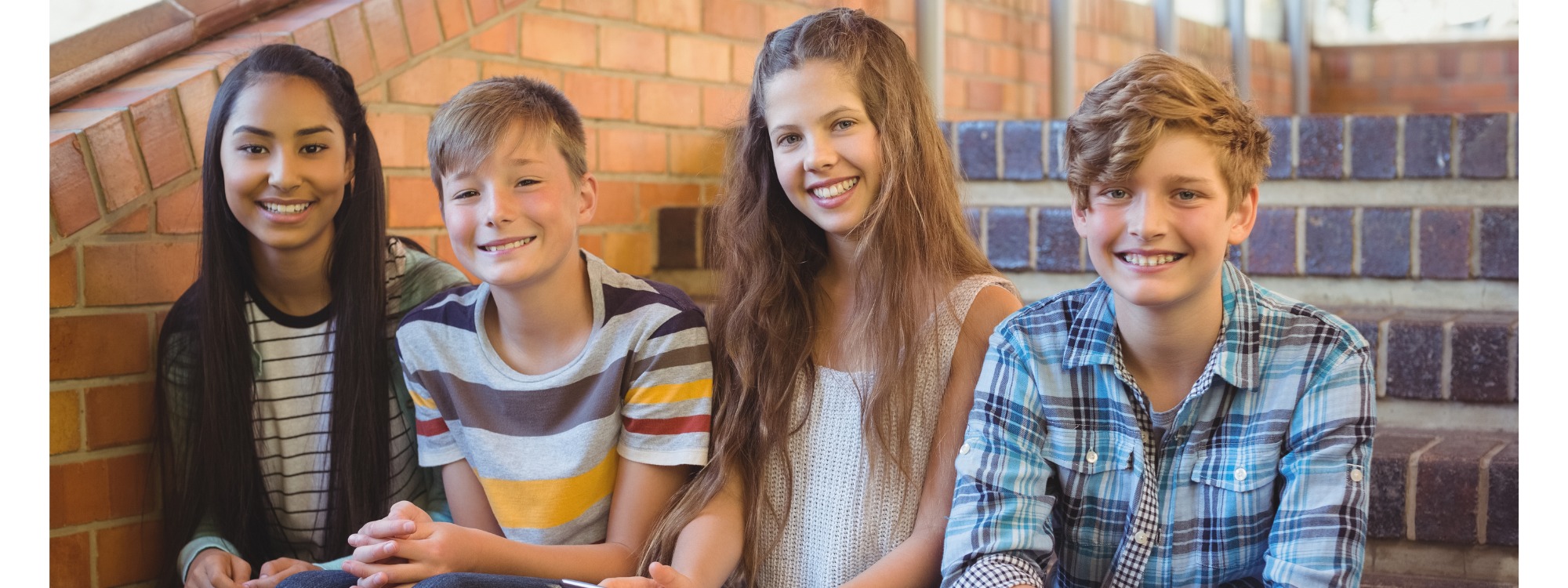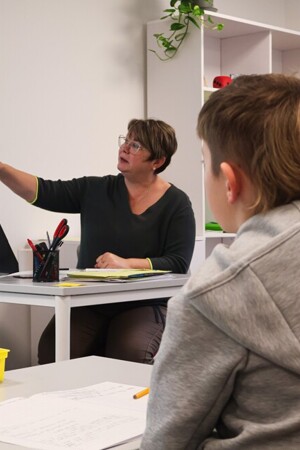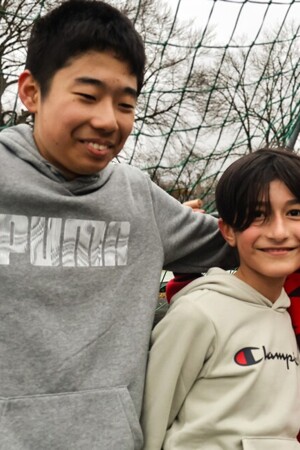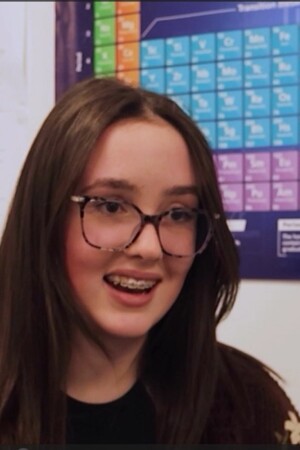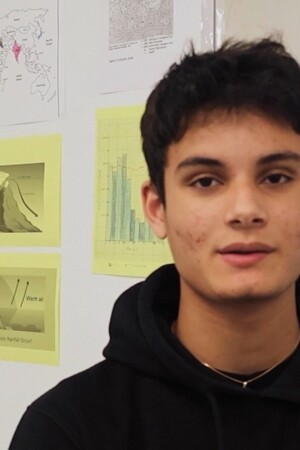British Curriculum
- Home
- Curriculum
- The British Curriculum
- Key Stage 3
Key Stage 3
Key Stage 3
Key Stage 3 marks the beginning of secondary education for students aged 11 to 13, encompassing Years 7, 8, and 9. At The British School in Gothenburg, we deliver a traditional British curriculum carefully adapted to meet the needs of an international student body, ensuring relevance and accessibility for all learners.
Year 7-9
Understanding that Key Stage 3 is a critical phase in a student’s academic journey, we prioritise a seamless transition from primary to secondary school. Starting in Term 3 of Year 6, students participate in preparatory activities such as teacher introductions, Q&A sessions, and introductory secondary lessons. These initiatives help students build confidence and familiarity with the secondary school environment, setting them up for success from day one.
Curriculum Structure
Our Key Stage 3 curriculum is broad and balanced, designed to develop independent thinking, perseverance, and a love of learning. Students study a wide range of subjects that lay the groundwork for the rigorous demands of the International GCSE program.
Core Subjects:
Students build competence across four core areas—reading, writing, speaking and listening—enabling them to interact effectively with diverse media, texts and audiences. They will:
-
Grow into assured communicators who confidently use all four skills in everyday contexts
-
View themselves as readers, engaging with a broad spectrum of texts—both informational and enjoyable—from various eras and cultures
-
See themselves as writers, crafting clear, imaginative content tailored to different purposes and audiences
Students gain a comprehensive grasp of mathematics by exploring underlying principles, patterns, systems, functions, and relationships. They achieve computational fluency and learn to apply their skills to real-world problems.
Our distinctive “Thinking and Working Mathematically” strand invites pupils to discuss ideas, question assumptions, and back up their reasoning with clear evidence. In doing so, they make sense of concepts and draw connections between facts, methods, and theories—cultivating advanced problem-solving skills and a mathematical perspective on the world.
Our Science programme ignites lasting curiosity about the natural world and empowers students to investigate phenomena scientifically.
They’ll hone scientific thinking and practical investigation skills alongside conceptual knowledge—essential for interpreting their environment. By spotlighting science in everyday life, learners develop the conviction that “science is for me,” deepening their engagement. This foundation readies them for advanced study and informed decision-making on sustainability and environmental challenges.
Foundation subjects
Art & Design empowers students to express ideas, ignite creativity, and build versatile skills. Through experimentation and critical reflection, learners become independent thinkers who can interpret and respond to their experiences.
-
See themselves as artists, growing in self-reflection and autonomy
-
Master techniques for visual communication and creative expression
-
Appreciate their role—and that of others—in an innovative, interconnected world
This programme also lays the groundwork for further creative study
Key Stage 3 Citizenship aims to help students become informed, responsible participants in society by:
-
Understanding Democracy & Justice: Grasp how government, law and the electoral process work.
-
Exploring Rights & Responsibilities: Learn about human rights, the rule of law and ethical decision-making.
-
Engaging with Communities: Develop respect for diversity, social inclusion and active community involvement.
-
Building Critical Skills: Analyse current affairs, evaluate sources and construct reasoned arguments.
-
Fostering Personal Development: Cultivate empathy, teamwork and leadership through debating, campaigning and service projects.
Our new computing curriculum unveils how computers operate by exploring their internal components. Students gain hands-on coding experience in text-based languages like Python and learn that computers follow only the instructions they’re given.
Key learning outcomes:
-
Break down problems, spot patterns, and extract vital details from instructions
-
Communicate algorithms clearly, both verbally and visually
-
Debug increasingly complex programs through logical reasoning
-
See themselves as budding computer scientists, understanding the impact of programming and data in everyday life
Key Stage 3 Design & Technology aims to enable students to:
-
Design Creatively: Generate and develop innovative ideas using research, sketching and modelling
-
Make Practically: Select and use appropriate tools, materials and techniques safely and accurately
-
Evaluate Critically: Test and assess products against criteria, refining designs based on feedback and analysis
-
Understand Context: Explore the social, environmental and economic impacts of design solutions
-
Build Technical Knowledge: Learn about structures, mechanisms, electronics and textiles to inform design choices
-
Develop Transferable Skills: Cultivate problem-solving, project management and teamwork competencies applicable across subjects and future careers
Modern Foreign Language offers a customizable structure for teaching any language other than English. By studying an additional language, students enhance their cognitive skills, deepen cultural awareness, and boost academic achievement—growing into assured, global communicators.
Within this framework, learners will:
-
Experience the satisfaction of mastering a new language while gaining insight into its structure and use
-
Develop empathy and intercultural understanding by exploring the traditions and contexts behind each language
-
Acquire the foundational skills needed for advanced study, preparing them for Modern Foreign Languages at Cambridge
Key Stage 3 Geography aims to help students:
-
Locate & Contextualize: Deepen understanding of places—from local regions to global hotspots—using maps and spatial data.
-
Explore Processes: Investigate physical systems (climate, rivers, ecosystems) and human activities (urbanization, migration, trade).
-
Develop Skills: Master cartography, GIS basics, data collection and analysis through fieldwork and digital tools.
-
Think Critically: Pose questions, evaluate sources, draw evidence-based conclusions and communicate findings effectively.
-
Understand Interconnections: Examine how environmental, social and economic factors interact and shape sustainability challenges.
Key Stage 3 History aims to empower students to:
-
Understand Chronology: Place events and developments on timelines and grasp periodisation.
-
Build Knowledge: Study Britain’s past and global civilisations to appreciate historical diversity and connections.
-
Apply Historical Concepts: Analyse continuity and change, cause and effect, significance, and similarity and difference.
-
Develop Enquiry Skills: Formulate questions, examine and evaluate sources for reliability, and construct evidence-based arguments.
-
Communicate & Interpret: Craft coherent narratives, recognise multiple perspectives, and present findings through discussion, writing, and creative media.
Music sparks imagination and boosts self-assurance. It empowers students to communicate their ideas and highlights the value of collaboration, as they engage with fellow musicians and connect with audiences.
Students will engage with music through performance, composition, and critical listening, exploring diverse styles and traditions. This journey builds leadership, teamwork, and confidence.
Students will:
-
Discover the joy of music through engaging, hands-on experiences
-
Acquire the skills, knowledge, and attitudes to contribute effectively as musicians
-
Work expressively with others via singing and instrumental performance
-
Foster both personal and group creativity
-
Apply their growing expertise to create original, meaningful musical pieces
Physical Education is essential to a well-rounded secondary curriculum. Regular activity boosts physical and mental wellbeing—and evidence links it to stronger academic performance. Building healthy exercise habits in lower secondary lays the groundwork for lifelong fitness.
PE focuses on “learning to move” and “moving to learn.” Through games, team sports, gymnastics, and dance, learners will:
-
Gain confidence and refine control, fluidity, and variety of movement
-
Deepen understanding of rules, tactics, strategies, and choreographic principles
-
Participate safely, respectfully, and responsibly as individuals and team members
-
Appreciate how physical education underpins a healthy, active lifestyle
-
Develop transferable physical, cognitive, and social skills—becoming independent, critical, and reflective movers and thinkers
These competencies support students’ broader learning and personal development.
Preparing for Future Success
Throughout Key Stage 3, students engage with curriculum content that aligns closely with International GCSE standards, allowing them to build essential skills and knowledge ahead of selecting their GCSE options. This strategic approach empowers students to make informed subject choices and confidently embark on the next stage of their education.
